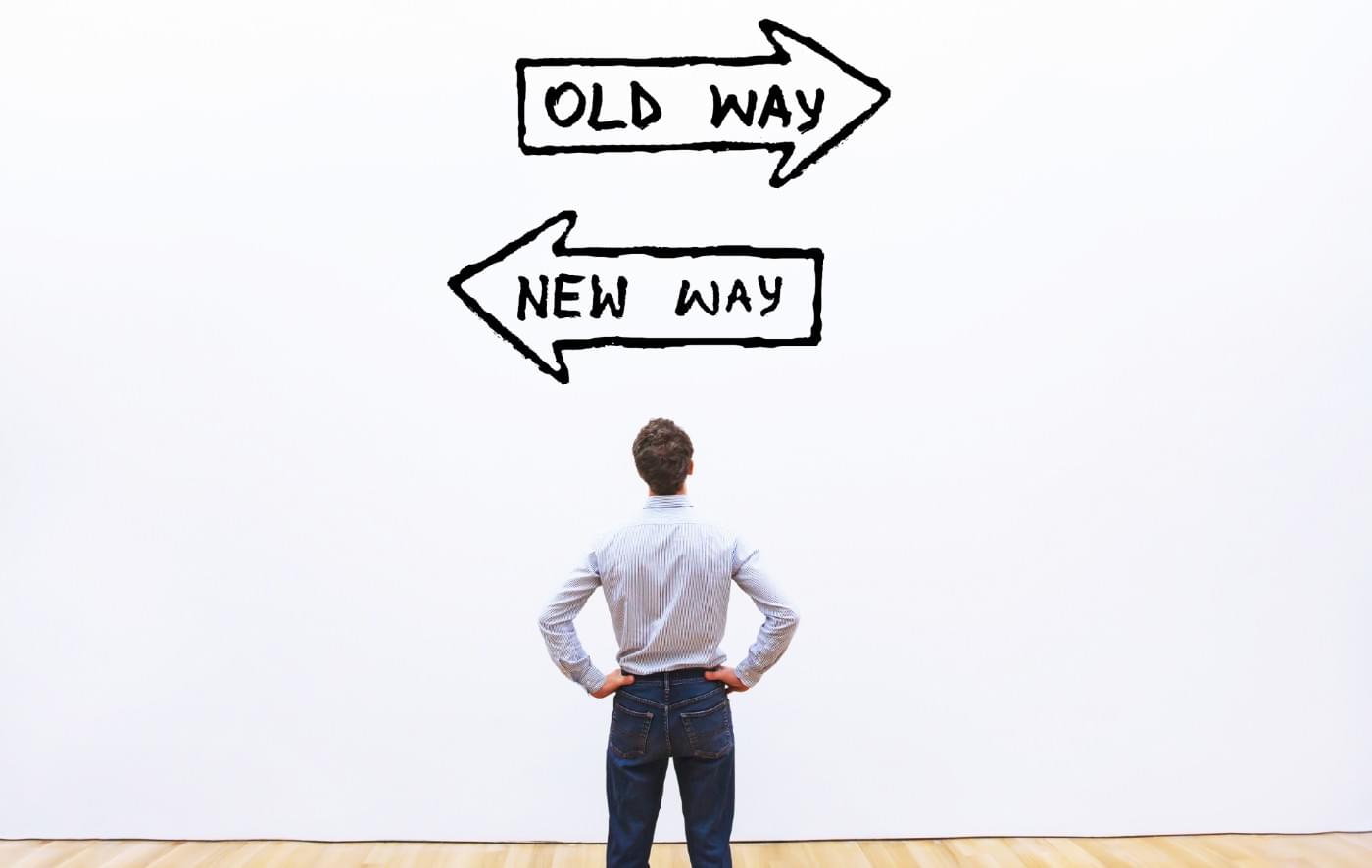Change is hardly a new concept to B2B marketers. You’re dealing with an influx of technology and data. You likely have responsibilities for revenue growth few marketers had a decade ago.
The year 2020, of course, is delivering even more change, from remote working to a steep economic downturn that most people weren’t expecting. With all of this change around us, we started asking a few questions:
- Why is it some people seem better wired to weather change than others?
- Why do some people seem better equipped to effect change in their organization?
- Are change agents born or developed?
- Is there a connection between the way a prospect or client handles change and the types of messages that resonate with them?
For answers to these questions and more, we spoke to change management expert Rob Bogue. As it turns out, an understanding of change management can help B2B marketers in a number of ways:
- Change management helps B2B marketing leaders more quickly make changes their teams support
- Change management helps team members understand how they can effect change
- And understanding the science of change is critical to understanding your clients and prospects, who are looking to create change by adopting new products and services.

Podcast Guest
After two decades of getting frustrated that the technology solutions he was building weren’t always changing the way organizations communicated, collaborated, and worked, Rob Bogue started studying the successes and failures of his customers. He started reading about psychology, neurology, marketing, history, management, sales, leadership, innovation, engagement, and dozens of other topics. He realized that technology projects are almost always thinly veiled change projects, and without the discipline to introduce change management practices into the process, his clients wouldn’t succeed. He now offers an online course called
Confident Change Management, which is designed to help people understand the tricks, tips, tools, and techniques they need to successfully navigate change.
Podcast Highlights
7:36
Rob Bogue: Let’s talk about stress. So stress, by the way, has an impact on burnout and has an impact on change, but stress… We all think of stress as like this “thing,” right? But stress isn’t a “thing.” First of all, stress is a biological mechanism that humans have subsumed. We have taken it over.
Stress was designed to, “Hey, I see a lion. I should run!” And it only lasted for a little bit. Either the lion was going to eat you or you were going to escape the lion. Those were the two choices. And we treat it as “Am I going to lose my job? And “Are we going to have house payments and food?” We’ve taken this thing that was designed to be short term and we’ve made it very, very long term,and in doing so, we have de-coupled some of the processes that were supposed to have happened.
So stress is not something that is external. Stressors — things that are external to you, environmental factors — those are external. Then what happens is you have an assessment phase. What the trick is with the assessment phase is, you decide “What would the impact be and how will I be able to cope?” Now, that can be internal resources, that could be external resources… You’re making a decision about “How should I react to this?” We experience stress when we expect high impact and our low ability to cope; a low ability for us to compensate.
And so that’s the system that’s in play. Now, how does that come back to your question, which is OK, so some people have higher tolerances for change and some people have lower. So change is a stressor in the environment, and the way that some people cope with that… the way they assess that is “Eh, that’s not that big a deal.” While other people are like “Oh my gosh, the sky is falling!” So the difference in the way they assess it is the difference in how they react to it.
10:40
Rob Bogue: The part that managers can manage; the things that manages can do, is the external piece of support. Well, the more supported
— this is an assessment — the more supported folks feel, the more likely they are to accept the change, the stressor, the things that are going on in their world. And, yes, there is an innate sense of what is someone’s tolerance, and there is a capacity for the manager to influence that and make people feel safe.
12:10
Rob Bogue: Yes, you can grow [the ability to become a change agent]. You grow it by creating simultaneously courage and an intolerance for the status quo. And so… a lot of what I do is I fix misperceptions — things that we were taught wrong. So courage. Courage is not moving forward in the absence of fear; courage is moving forward in the presence of fear. It’s the decision to move forward, even though there is risk. And, again, we’re back to that stressor and assessment. It’s the decision that it’s worth the risk to move forward. So when we’re talking about developing folks and developing that courage component, we’re talking about, How do we make them more comfortable with the risks? And it’s back to that assessment and stressor. The second part of that is how do you get them to not be OK with the status quo. How do you get them to say “I want better. I want more?” And a lot of that just comes naturally as we grow up, as we have more experience.
14:55
Rob Bogue: A lot of marketing — and we’ve done marketing for years — and a lot of it is fear. A lot of marketing is still fear based, though it’s shifting. Fear-based marketing doesn’t work — it just flat doesn’t work — on people that are high-courage people. And it doesn’t work because you cannot push them into fear. They’re like “Yeah, whatever. The sky is falling? I got a strong roof. I’m OK.”
16:50
Rob Bogue: I think we forget that there is a friction in the equation. And the friction, as it pertains to change, is a lack of trust. Right? So let me shift this. To put into marketing: it’s credibility, right? It’s that… how do you believe what the CMO says, because you know as well as they do they have an 18-month tenure. That’s not a secret… so how does the CMO build rapport and trust with their employees? And if they can do that, then they’ll be able to accomplish change.
Most of the folks that I see, regrettably, are not good at trust building. Building trust takes time. There’s no shortcuts to building trust. There are certainly defining moments that can happen that can engender trust, or not.






